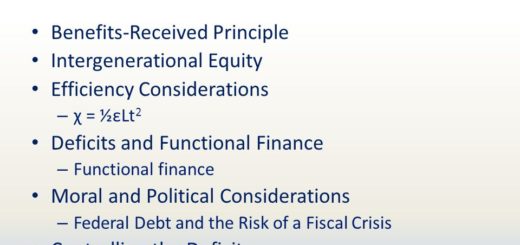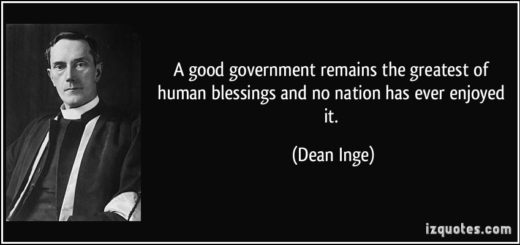Part 3: The Era of the Public Banker Begins

Wealth Abounds as Taxation Abolished
As explained in the first part of this 3 part series, the task of funding government has always fallen to the Taxpayer. That to fully understand public finance, one must heed this generally neglected fact. In Part 2 of this 3 part series it was discovered that it makes no difference if a community has its government tax or borrow to fund public expenditures. In Part 3, we note that Taxation bears immense costs which disappear with Borrowing, leading to the conclusion that it always best that government borrow instead of tax – a most bizarre result.
Firstly, a tax is a deterrent, penalty, or fine. It deters one from doing what he normally would do were there no tax. The same instrument, used to raise funds for public expenditures, is used to penalize the unlawful, speeders, criminals. As with criminals crushing fines or tax rates discourage and chase away the most productive people and firms among us, leaving us all poorer. If the government should remove or lessen that deterrent, people and firms, ceding far less to government, will have more money with which to invest, consume, retire debt, and save. Worthy economic activities squelched, halted, curbed, delayed or concealed will of a sudden re-emerge and resume. Firms and people having sought tax refuge elsewhere will have every reason to return home.
Secondly, Government operates on the principle of expenditure, not on the principle of providing estimable public services. Along with valued programs, government engages in politically useful, but dubious, harmful, and barren programs, and institutes regulations for the benefit of itself, voting blocks, and the special interests that control it. The costs of such squander and corruption have expanded to large fractions of the economy.
In the 19th century, Britain at the height of empire, with flourishing trade, industry, innovation, and possessed of a formidable navy, enjoyed its highest growth rates. Never during that unprecedented period did Government expenditure comprise more than 10% of GDP. In the present in North America, we have moved well beyond that scant percentage with government participation nearing fractions of 50% of GDP. By the previous standard we are squandering 1/3 of the nation’s resources on unproven, probably unworthy endeavours.
By opting for full Borrowing for all public expenditures instead of Taxation, the government, with capital charge imposed, would have to borrow funds instead of eagerly and obnoxiously confiscating them, daily entering the financial markets. With taxpaying slaves transformed into Public Bankers, the people or resident lenders would become the arbiters of which public expenditures are worthy and deserving of funding, and which are unworthy and deserving of rejection. Government, forced to re-evaluate everything it does, to operate under sound financial imperatives and to implement sound financial measures, would act as prudently as people and corporations with simple cost and benefit analysis applied to all undertakings.
One should see the costs of government to decline and drastically. Let us say that a government spends $13 billion per year under Taxation. With Borrowing that sum declines to $7.0 billion.
The collective box of assets, property, incomes known as That Which Funds Government or TWFG gains an asset of $13 billion, the sum no longer taxed and consisting of $6.0 billion in cash and $7.0 billion in public bonds. TWFG then incurs a liability of $7.0 billion in bonds issued. This leaves TWFG enriched by $6 billion ($13B – $7B).
TWFG – Curbed Public Expenditures
| Assets Gained | Liabilities Incurred |
| + $7 Billion pub. bonds held | + $7 Billion pub. bonds issued |
| + $6 Billion cash | |
| Total $13 Billion | Total $7 Billion |
Increased wealth: ($13B – $7B) = $6 Billion.
And do recall that the deterrent effect of Taxation evaporates with its abolition. If the increases in productivity and growth from shedding deadweight costs of Taxation are calculated and included, wealth would surge steeply.The return of absconding wealth, assets, able individuals, and productive corporations from formerly light climates of Taxation, the eradication of all constraints upon, impediments to, and distortions of investment, industry, and labour, the elimination of favoured relationships and monopolies that shamefully elevate prices and enhance profits for the select at the expense of the common, liberation from the expensive apparatus of tax preparation and advice, the elimination of onerous and unnecessary regulation, an end to surcharges and constraints upon consumption, an influx of external investors and investment, the end of disparities and inequities in payment of tax, and the erasure of many other unnecessary practices sired by this corrosive instrument should all yield a collective and immense largesse.It is very conservatively reckoned that the abolition of Taxation, by diminishing costs and spurring profits, would enlarge conservatively the assets of TWFG by at least a further $6 billion per year.
TWFG – Deterrent Effect Erased
| Assets Gained | Liabilities Incurred |
| + $6 Billion deterrent erased | |
| Total +$6 Billion | Total +$0 Billion |
Increased Wealth: ($6B – $0) = $6 Billion
Hence, the aggregate of TWFG would rise to $20 billion and incurred liabilities remain at $7.0 billion, leaving the wealth enhanced by $13.0 billion.
TWFG – Curbed Govt. Expenditures and Deterrent Combined
| Assets Gained | Liabilities Incurred |
| + $7 Billion pub. bonds held | + $7 Billion pub. bonds issued |
| + $6 Billion cash | |
| + $6 Billion deterrent erased | |
| Total + $20 Billion | Total + $7 Billion |
Increased wealth: ($20B – $7B) = $13 Billion
With such results it is easily conceded that Taxation, a penalty, and Borrowing, an inducement, possess little equivalence as a means of raising funds for public expenditures. With Taxation and its immense costs erased, full public Borrowing would make any jurisdiction blessedly and incomparably wealthier.
So why does a community tax with all its inherent and punishing costs to fund public expenditures when it can borrow, escaping Taxation’s inherent ills and unleashing great wealth for its citizens?I predict this very advanced idea soon will be of service in rendering the stagnant, medieval fields of economics once again fertile. Puerto Rico, Venezuela, Africa, North Korea, China: the way is clear.
If you disagree with our proof that it makes no difference if government taxes or borrows from the resident citizens of a jurisdiction, submit a refutation and, if successful, we shall award you the CDN$10,000 prize.




1 Response
[…] To Read More On This Step – Click Here […]